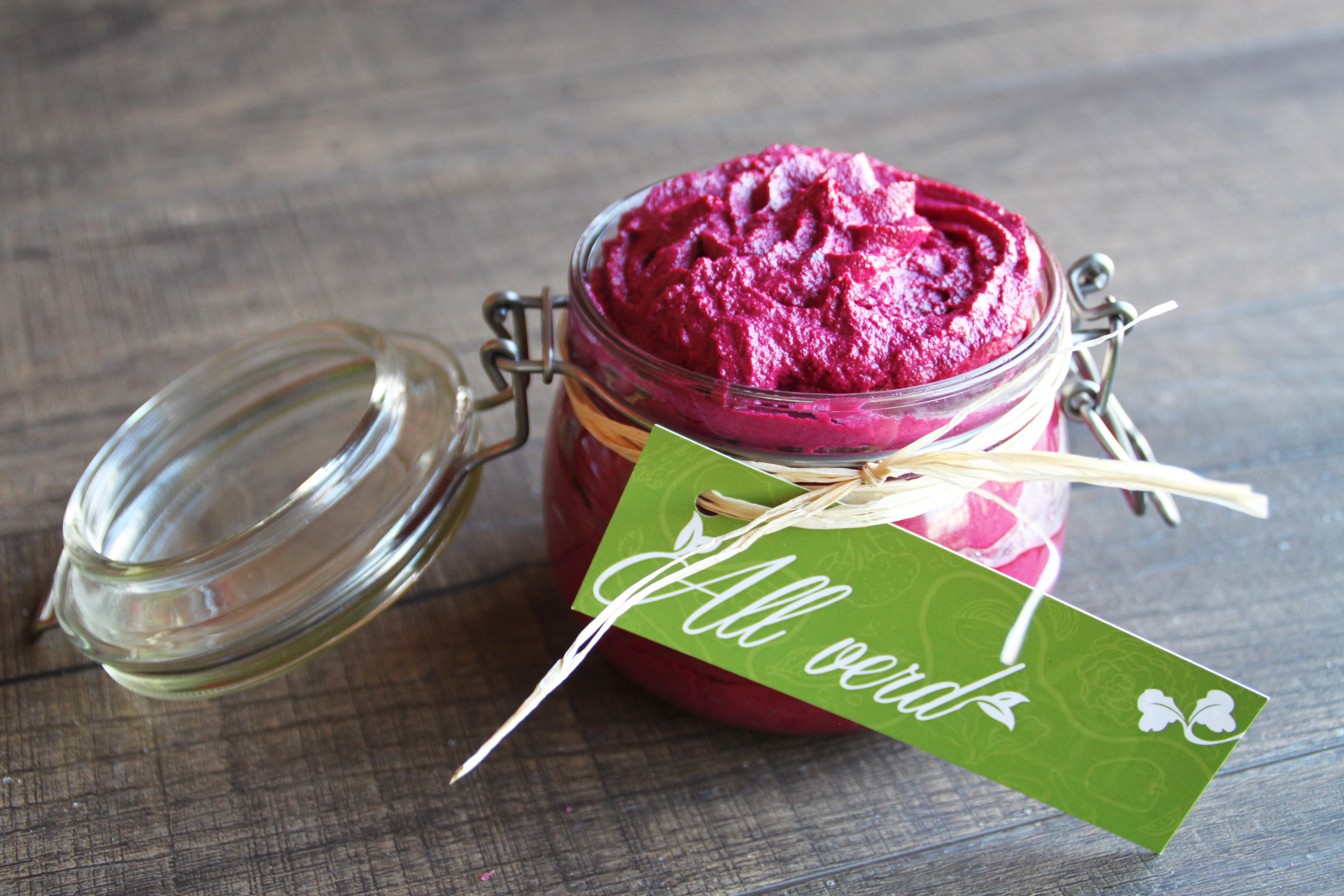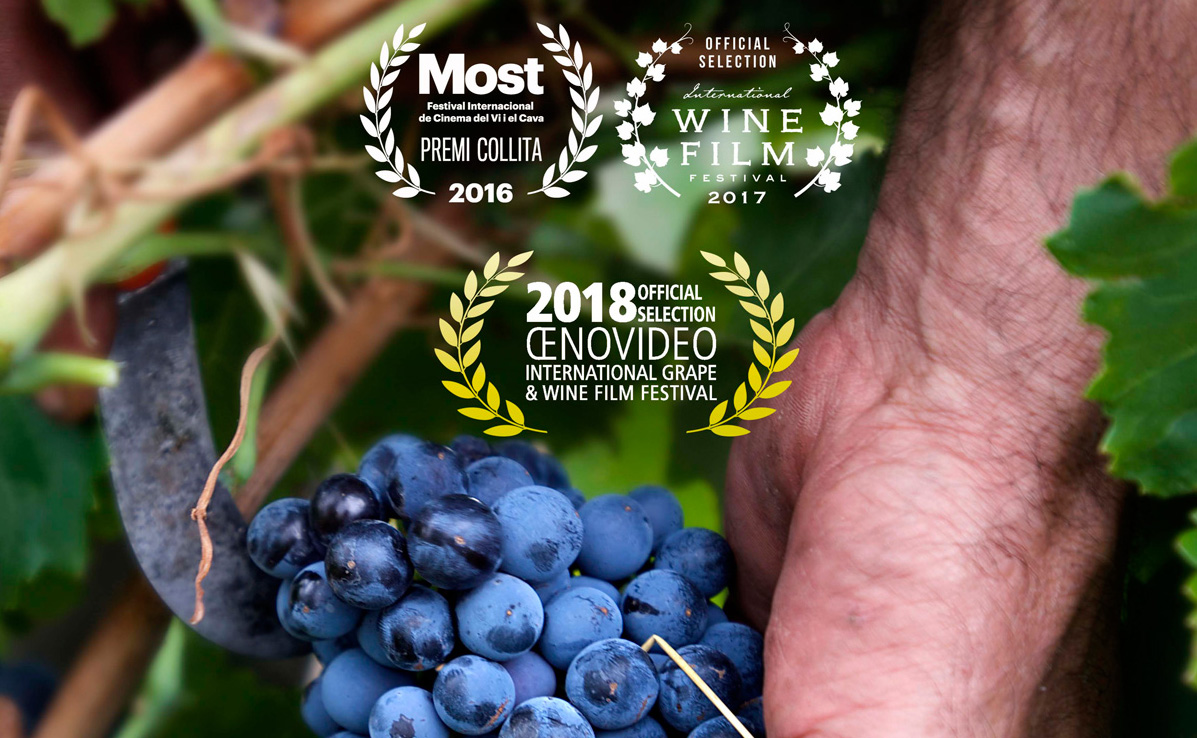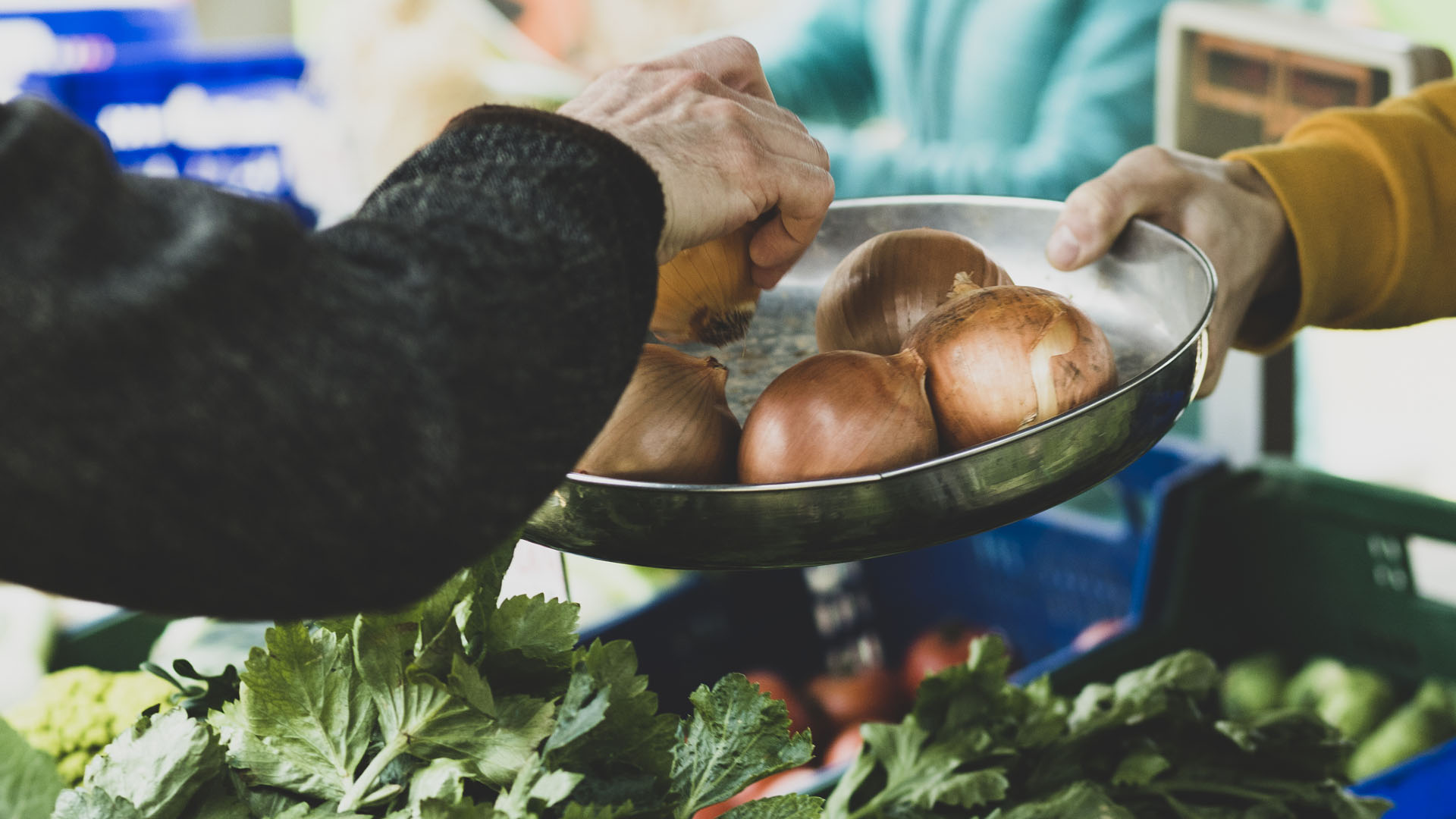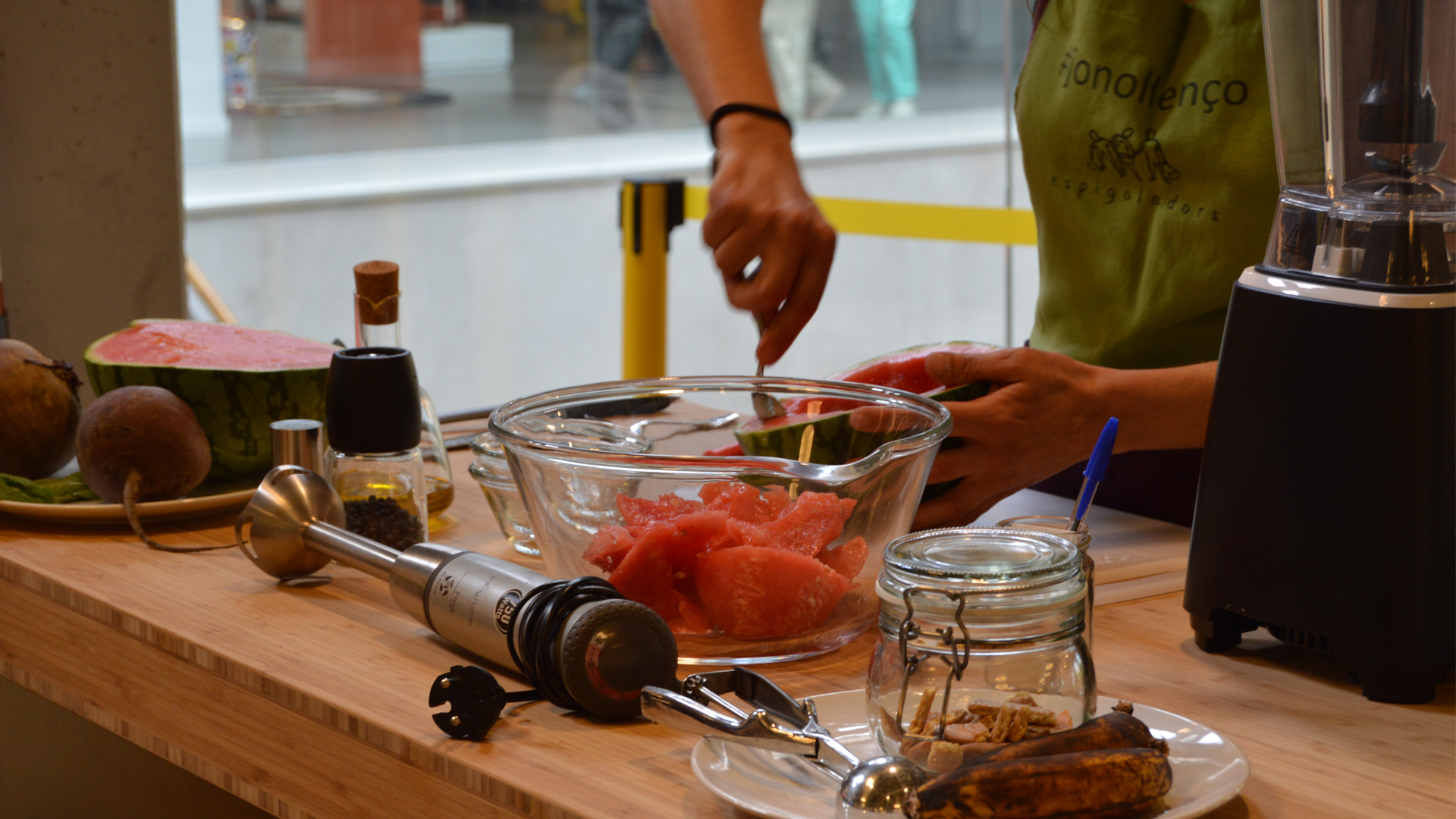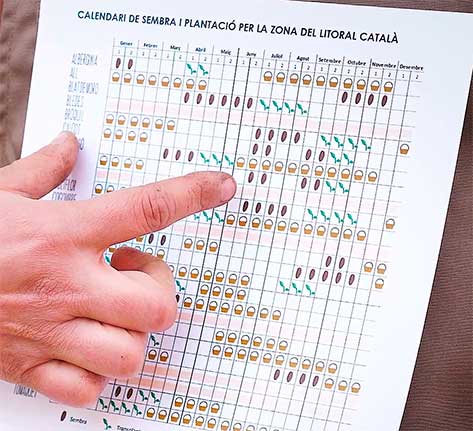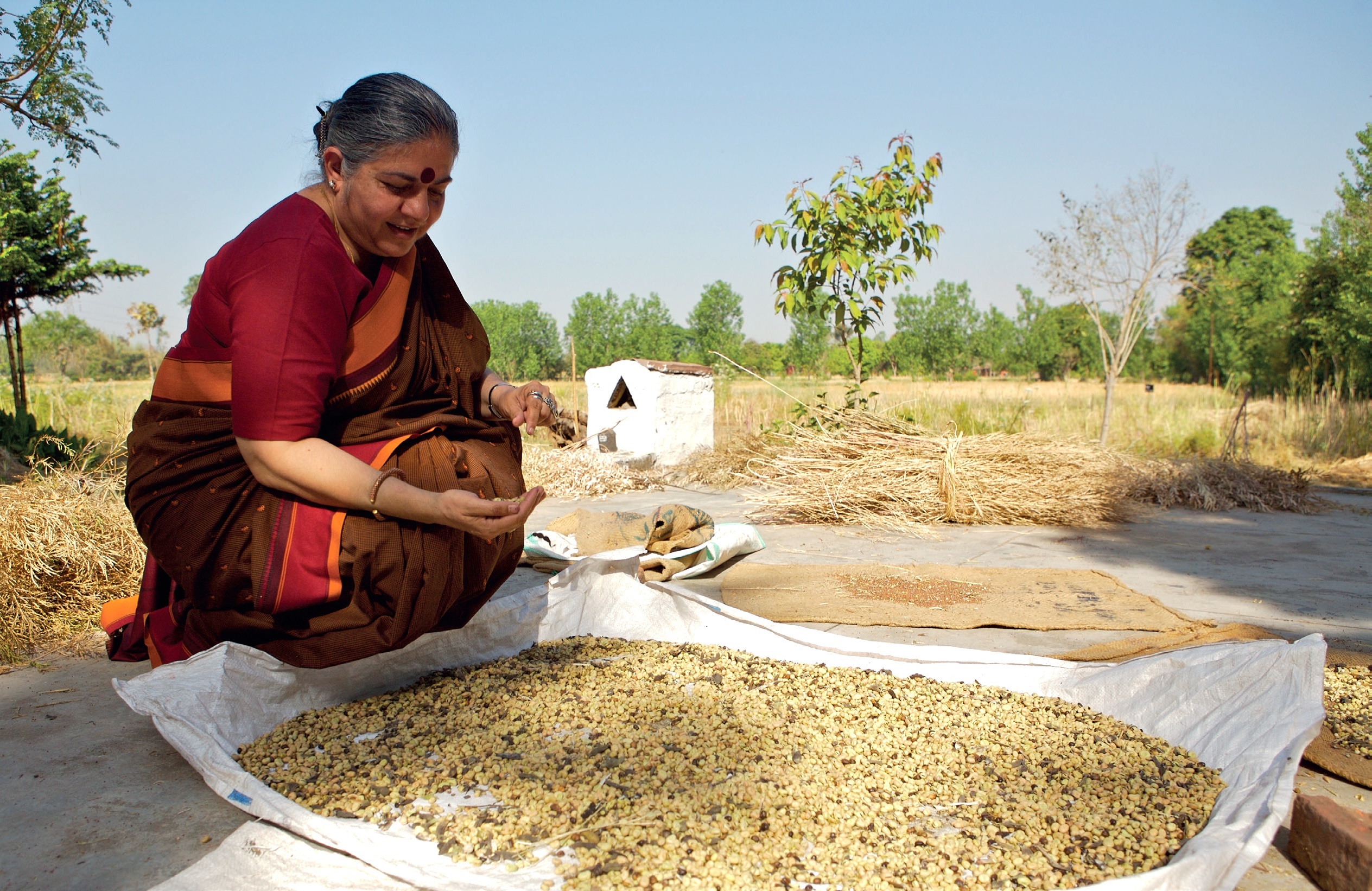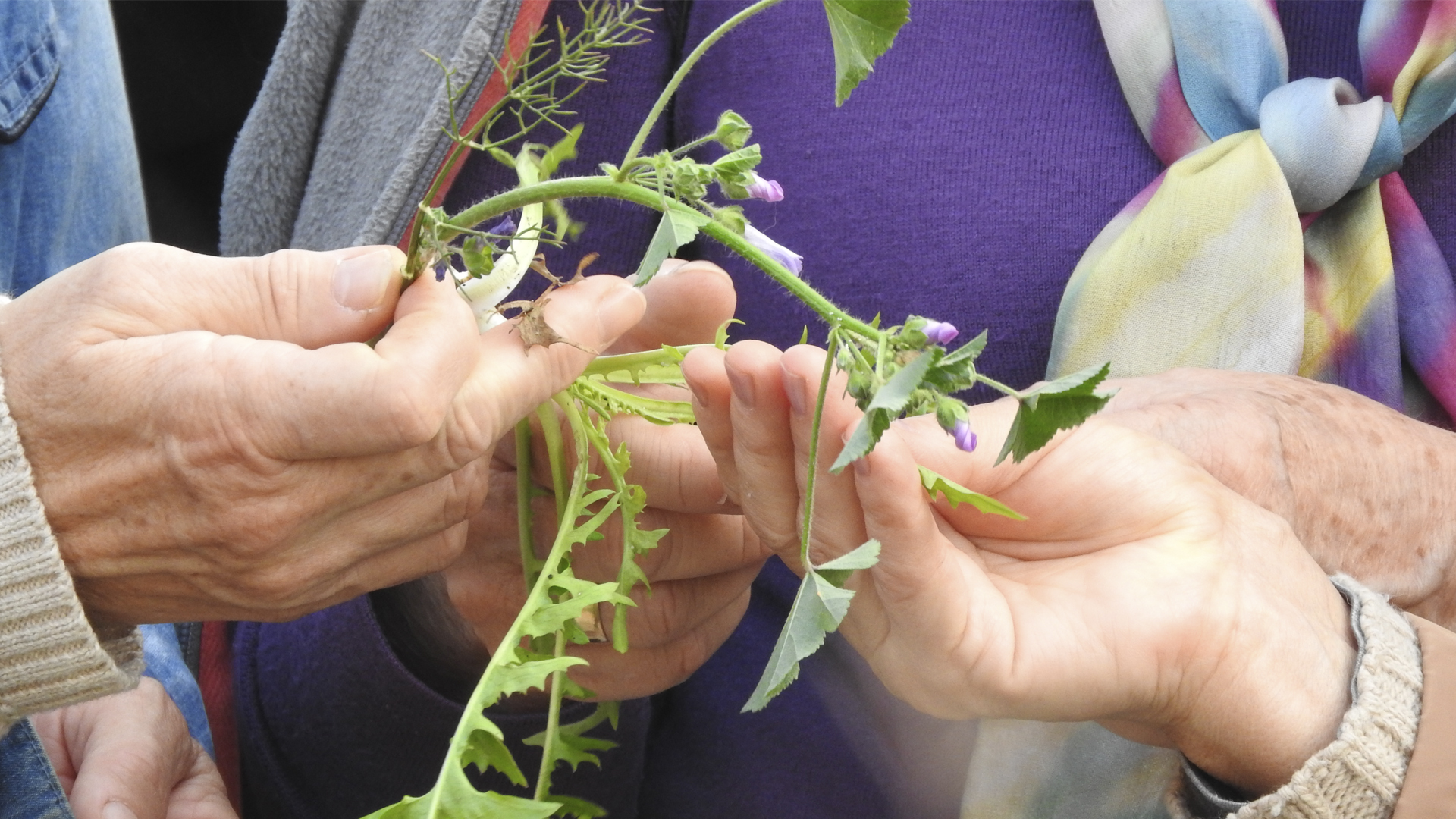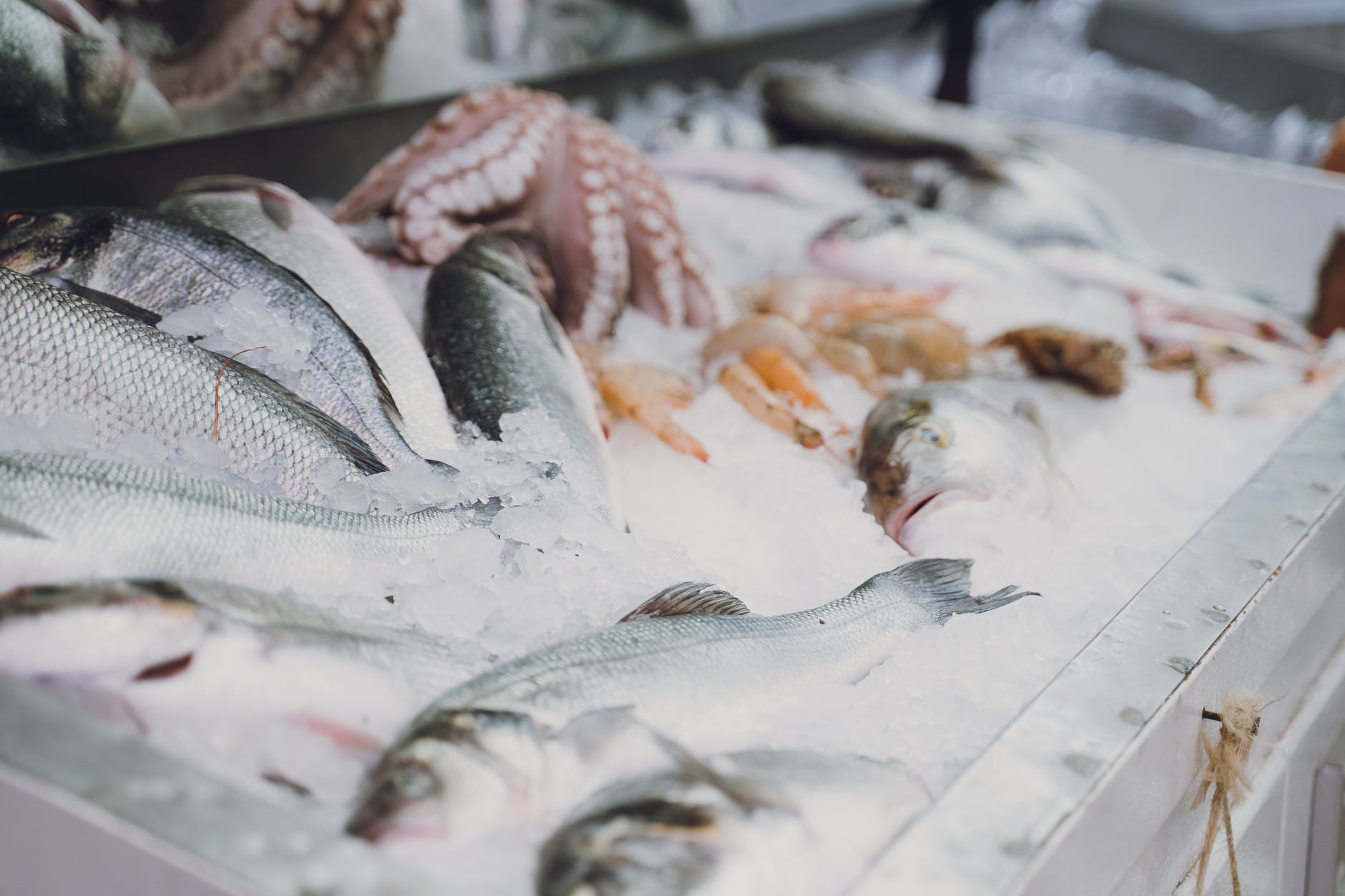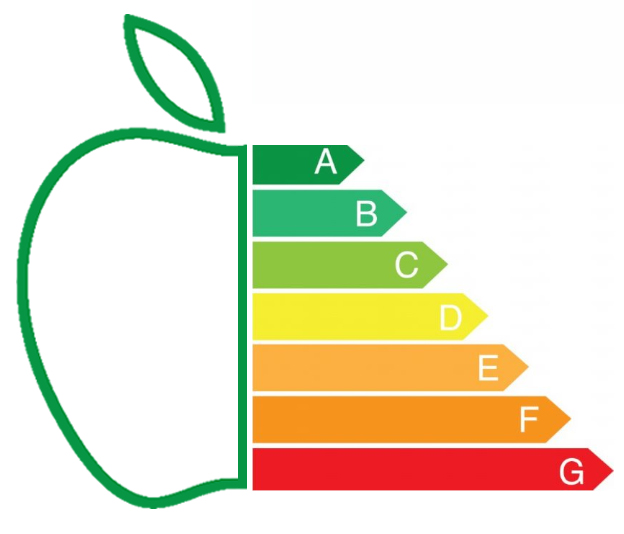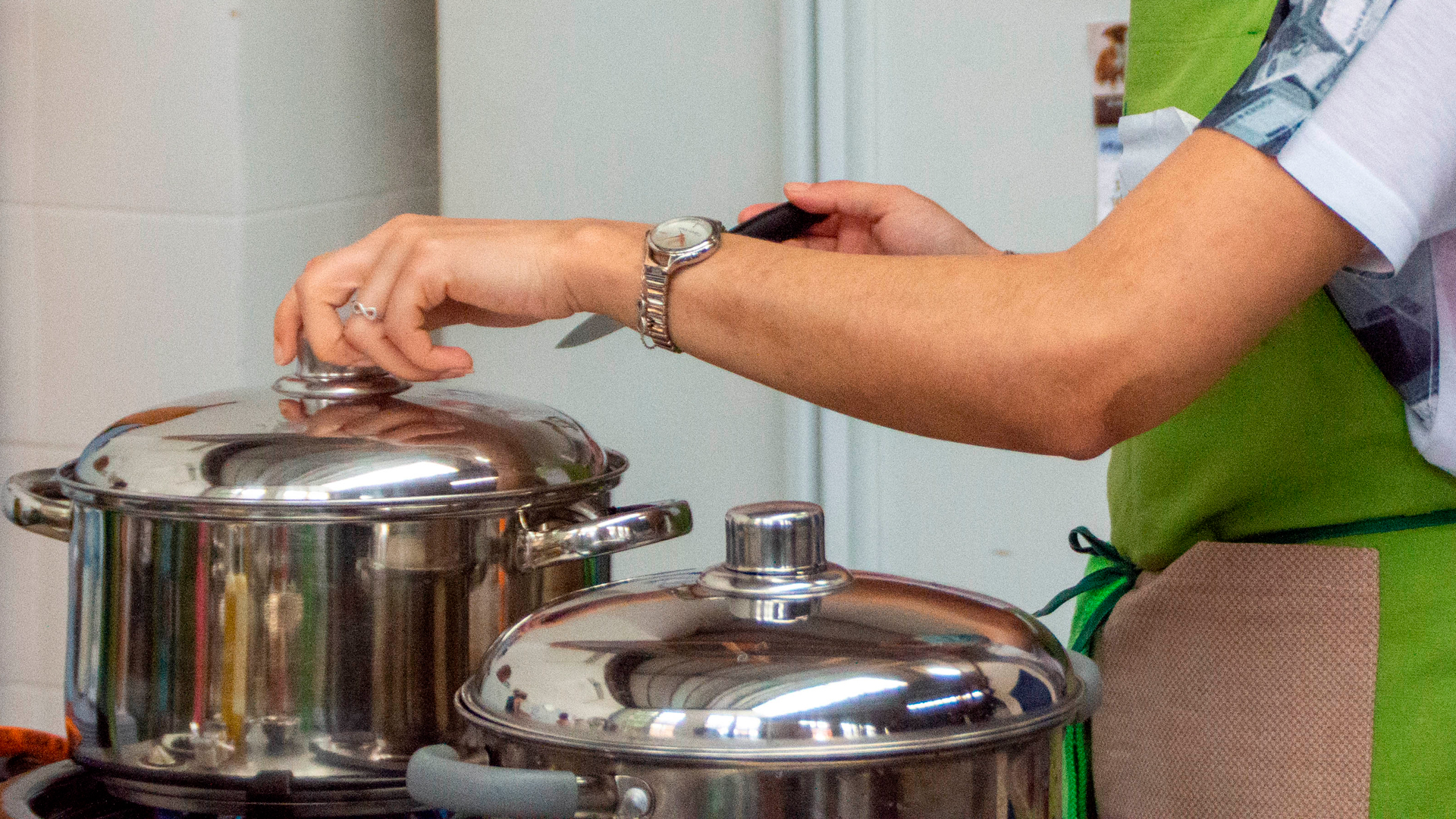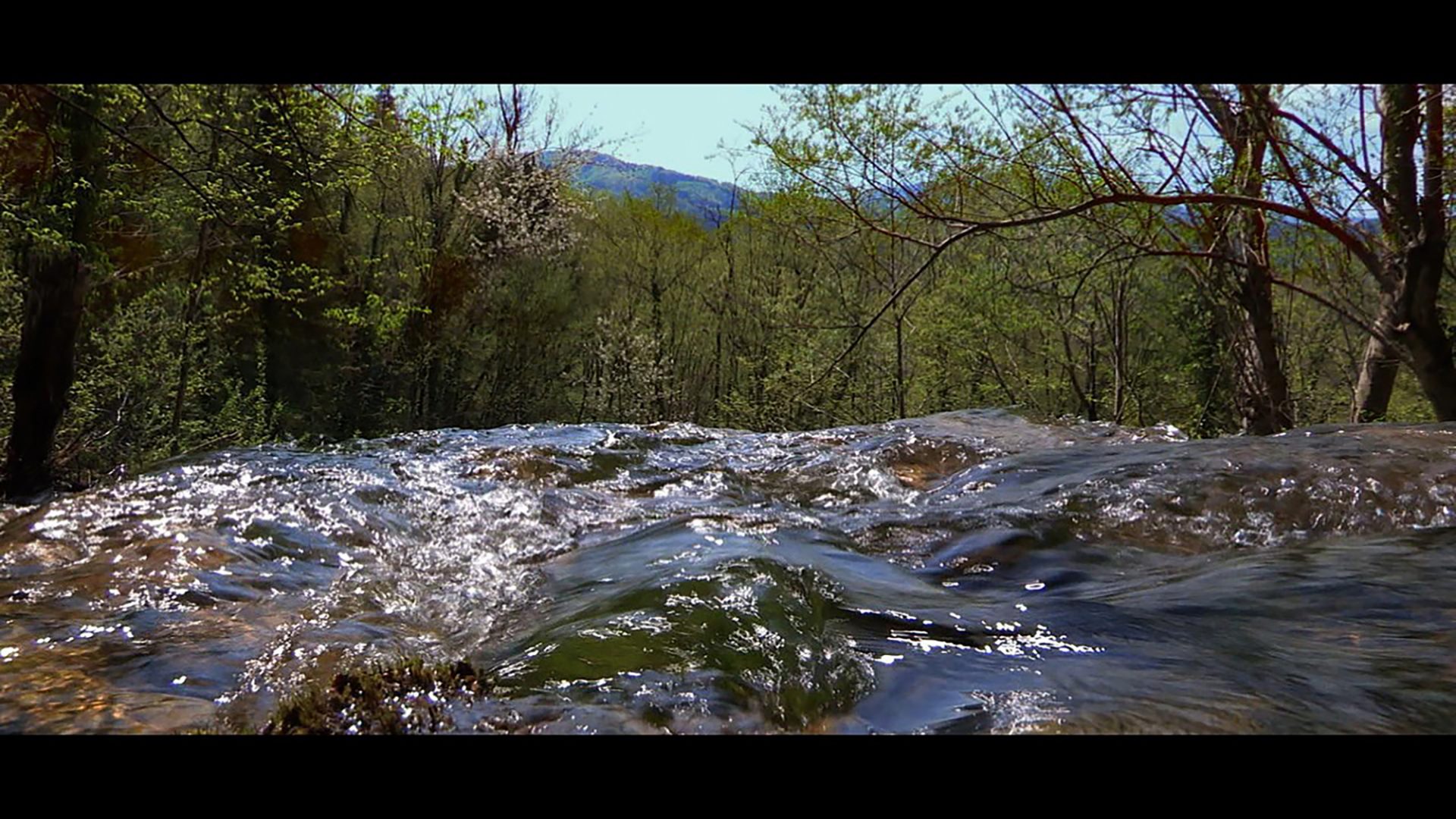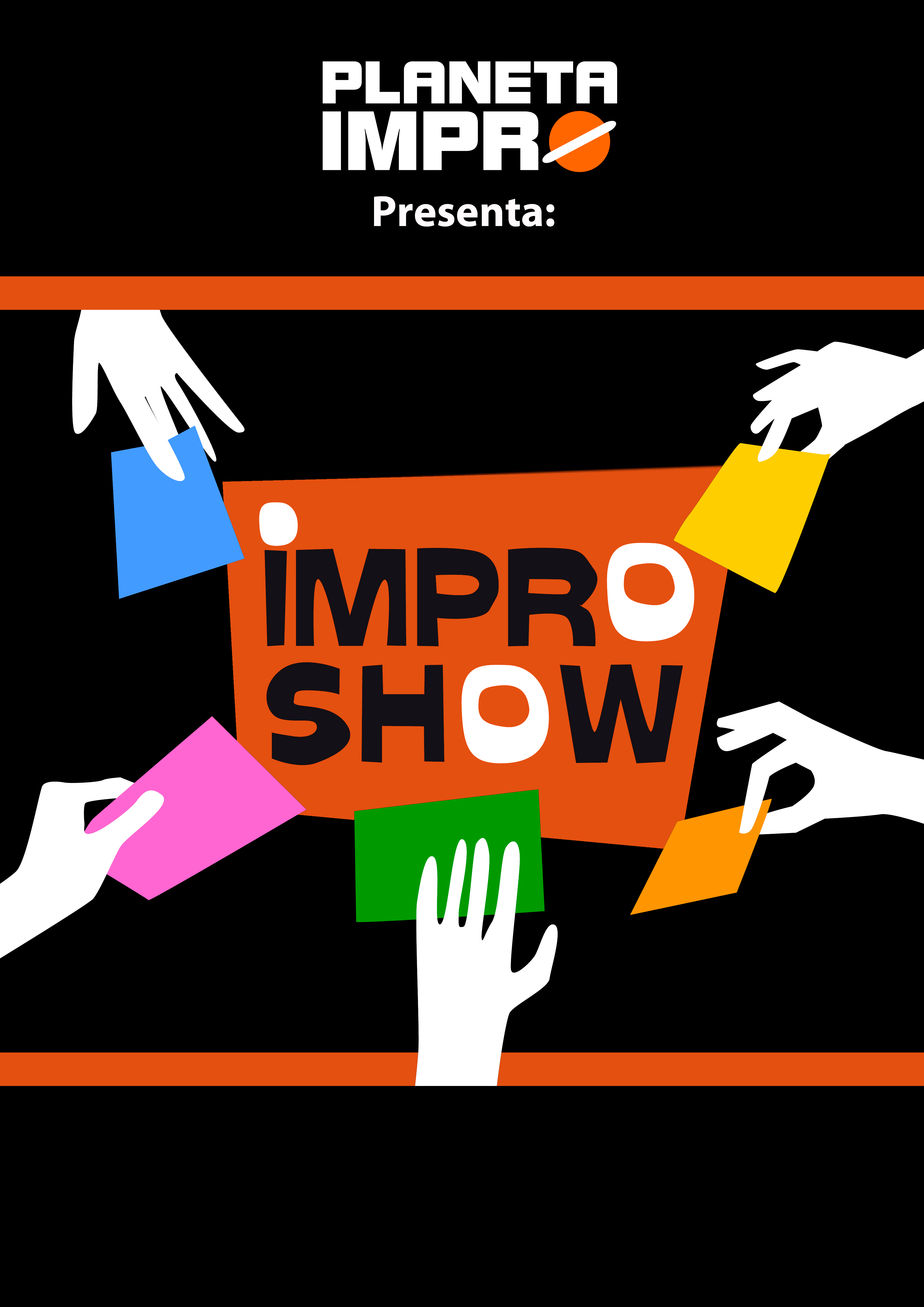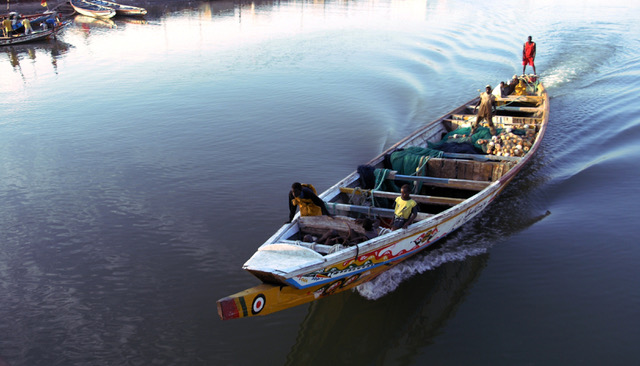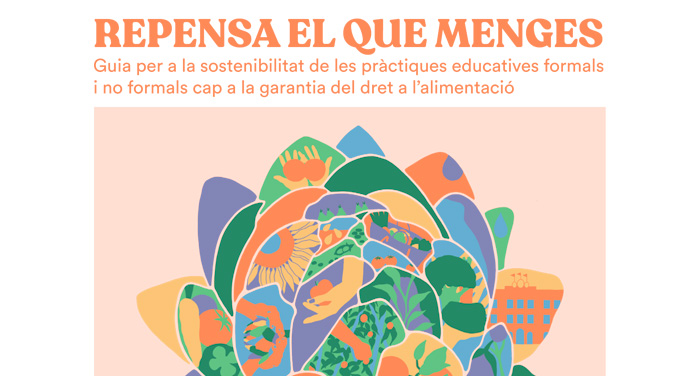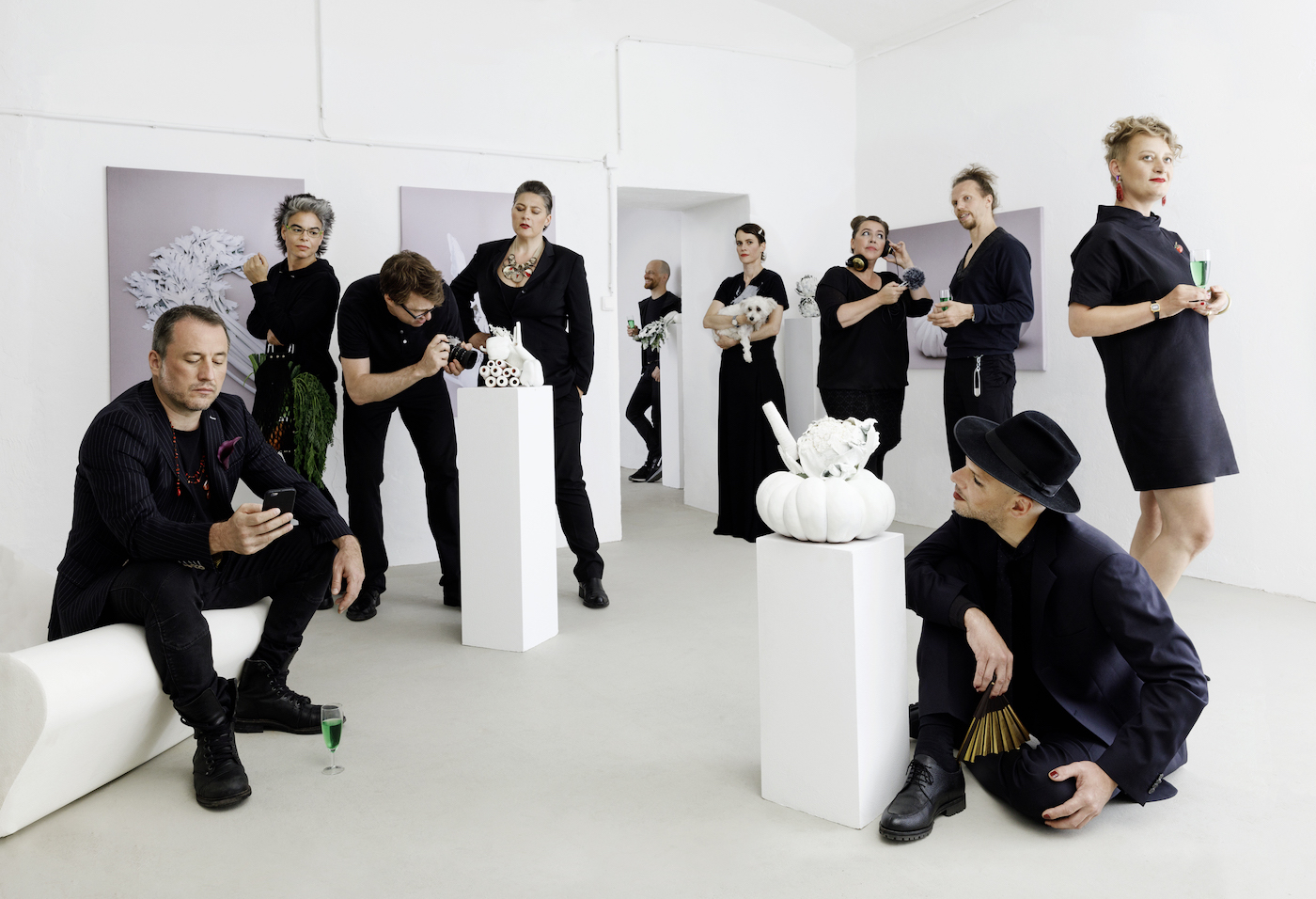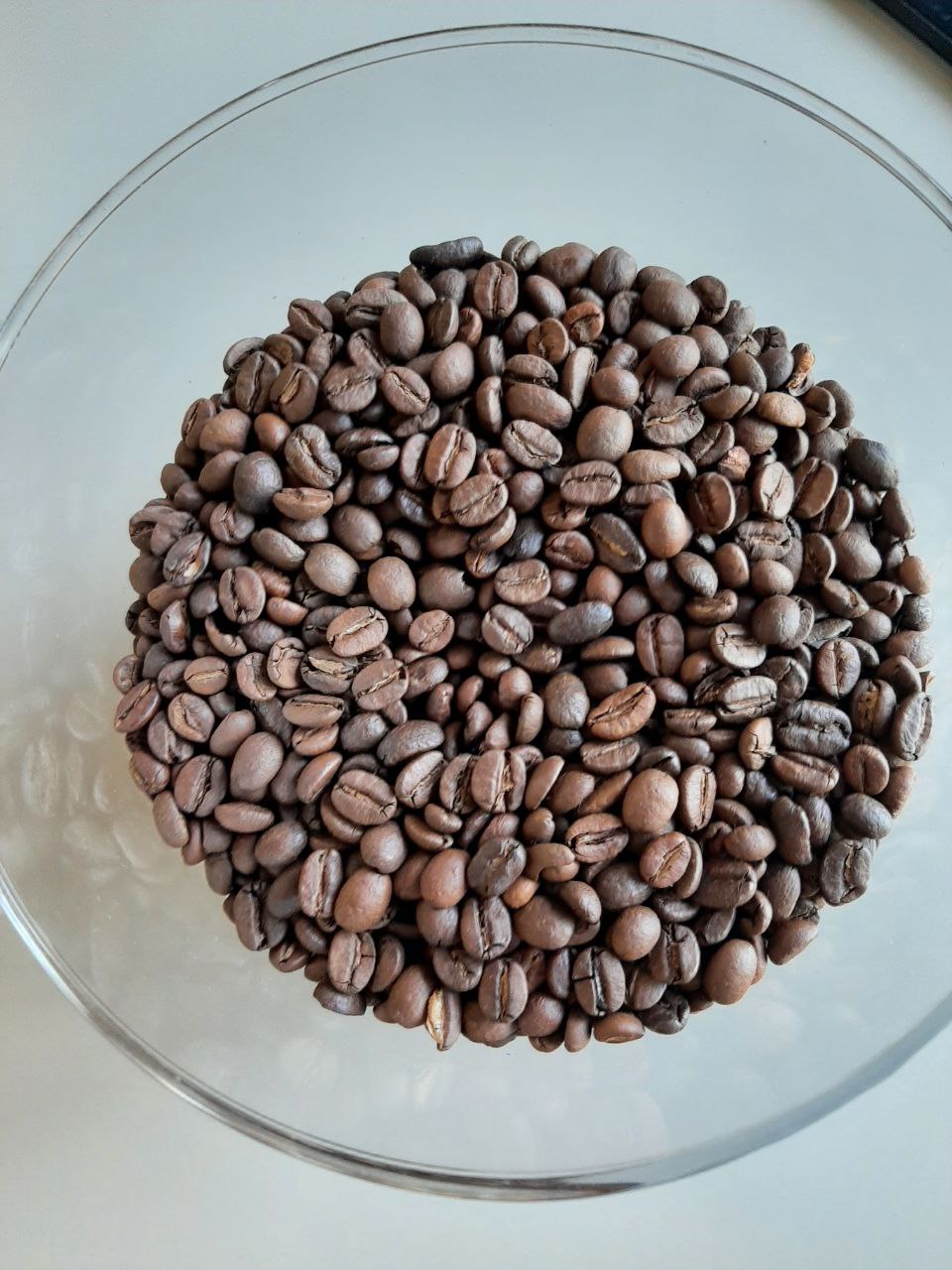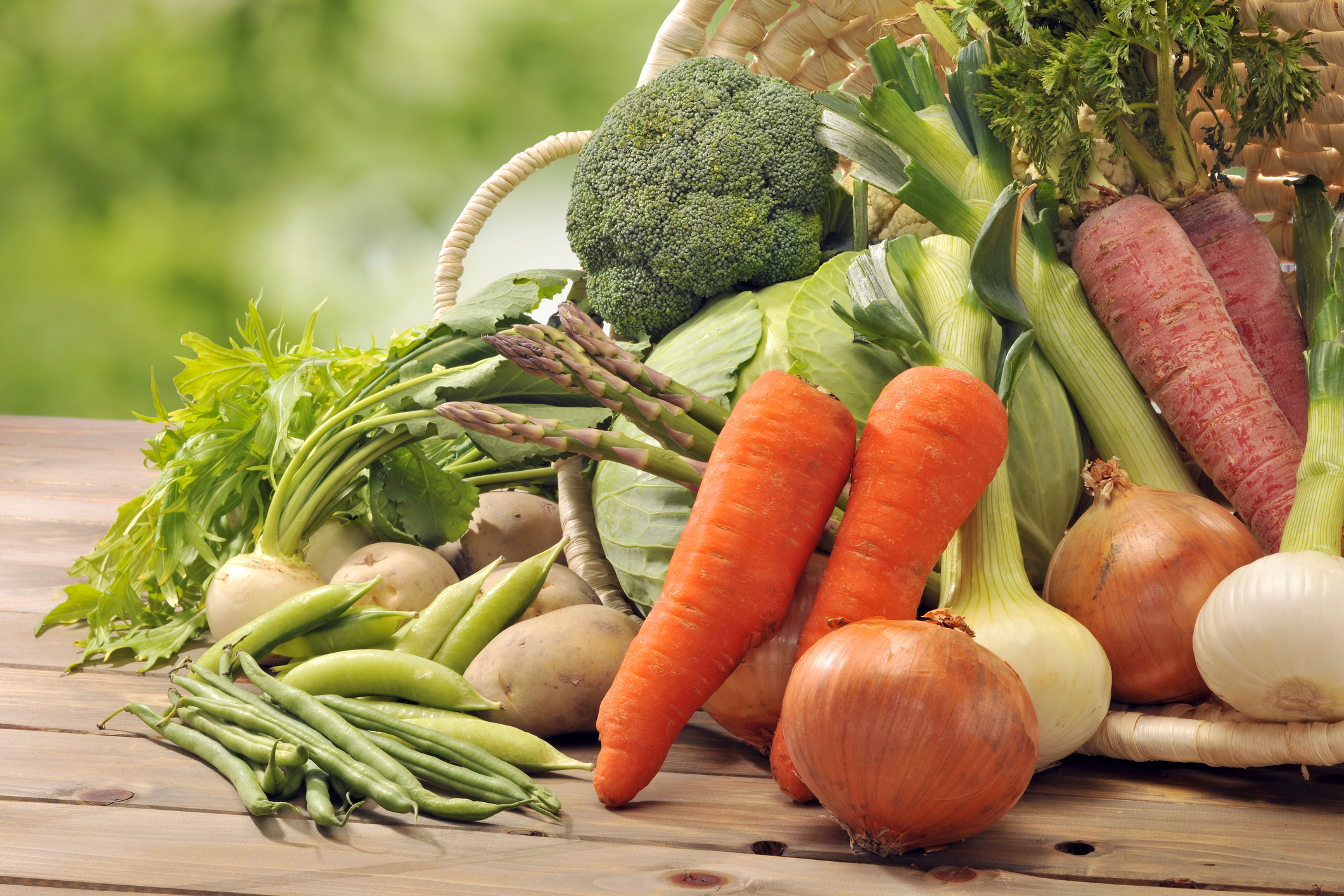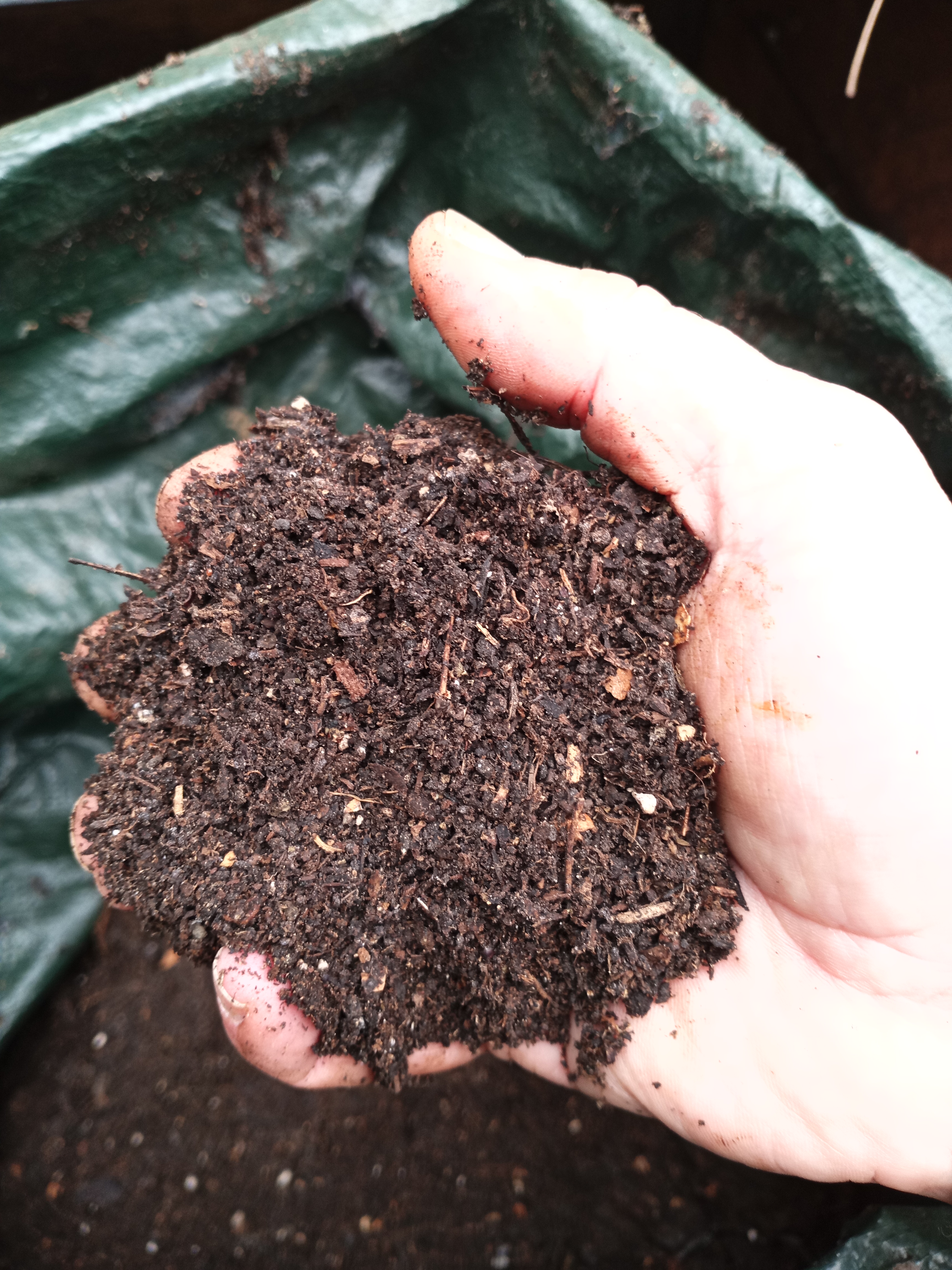Doing it for the pleasure of caring for ourselves and finding a balance, without restrictions or feelings of guilt.
A healthy relationship with food, making the most of seasonal produce and letting creativity into our kitchen, even if it's only for the lunch box we take to work.
We’ll try, using uncomplicated recipes, tastes, aromas and colours. We'll emphasise the importance of colour in our dishes.
Emotions and healthy eating go hand in hand.
Sustainable Food Citizen Week
Video resum de la Setmana Ciutadana de l'Alimentació Sostenible 2021
The activities of the Sustainable Food Citizen Week
Sustainable Food Citizen Week provides an opportunity to understand the relationship between food habits and cross-cutting aspects such as the climate emergency, local economic development, culture, politics, social rights and health. A week dedicated to citizens, in which you will achieve knowledge, reflection and debate about the main issues of the following activities.
Gastronomic heritage
- October 21st - 18.00 HBetevé broadcastingTelevised cooking workshop
- October 22nd - 22.00 H (variable according to betevé programming)Betevé broadcastingDocumentary film season
Documentary on natural wine in Spain. A trip from the north to the south of the country, with the vineyard and wine as the background.
A reflection on natural wine from its producers and opinions from renowned sommeliers.
This activity is part of Betevé's documentary film season, including the films Fermentación espontánea, Taste the waste, Food for change and Il mare piange.So you can combine the documentary with a wine tasting at home, we provide you with a list of wines by order (and time) of appearance.
Minute 01 – Sparkling wine from an ancestral method made in the Alt Empordà. Sparkling wine with unique fermentation.
Minute 05- Red wine from the mountains, made on the north side of the Alpujarra in Granada.
Minute 10 – Mineral and fresh wines made in the Sierra de Gredos (Avila), mainly with Garnacha, also with local white varieties such as Chelva, Albilla Real and Malvar.
Minute 13 – Red wine from the Sierra de l’Albera, in the Alt Empordà, made with Garnacha and Carignan (Lledoner and Samsó).
Minute 16 – White wine with maceration of the skins (orange wine) from Penedès made with Xarello from old vines worked within biodynamic parameters.
Minute 19 – Light red wine made with Sumoll, a native grape of the Penedès. From vineyards surrounded by forests of the Alt Penedès.
Minute 23 - Red wine from Galicia from a heroic viticulture of micro-plots in the Ribera Sacra area.
Minute 27 - White wine from the La Mancha variety and the most planted in the peninsula: Airén, in this case, comes from very old, free standing vineyards.
Minute 31 - Terra Alta red wine, inland Catalonia. From a dry and warm area, with powerful aroma and flavour.
Minute 36 - Wine with Mediterranean expression, made in clay vats in the region of Murcia, from the Tintorera Garnacha grape variety.
Minute 38 - White wine from Montepila grapes from vineyards surrounded by olive trees in Cordoba. - October 29 and 30 from 12.00 to 23.30 H, and October 31 from 12.00 to 22.30 HLa Rambla de Barcelona (between Centre d'Art Santa Mònica and Colom)Market
“Terra i gust” is a gastronomic project that links restaurants with small producers, an initiative from Barcelona City Council and organized by Gastronomia de Proximitat and Slow Food Barcelona, with the support of the Association of Gastronomy and Tourism of Baix Llobregat and l’Hospitalet.
It will be a place for citizens to see the different stakeholders involved in the value chain of local products and sustainability, and to point out the importance of the small artisanal producer, of maintaining traditions and environmentally friendly techniques, highlighting the union with gastronomy.There will be various different spaces:
- Spaces for sustainable gastronomy
- Spaces for beverages, with the participation of the Barcelona Beer Festival, with a selection of craft beers. Natural wines, filtered water, and kombucha will also be served.
- Producers market with seasonal and ecological products.
- There will also be an area for cooking shows, talks and games for kids-
Waste vs Good use
- October 22nd - 18.00 HBetevé broadcastingTelevised cooking workshop
A chef and an expert in better food use provide advice and useful tips for making the best use of food in cooking. Using the preparation of various recipes as a common thread, the programme introduces concepts that show the importance of sustainable, healthy food and ideas that help to prevent food waste, through everyday consumer and cooking habits.
Urban rurality and biodiversity
- October 19th - 19.00 HVideoconferenceWorkshop, Online
Virtual session offering advice and answering questions about the value of seasonality: food production and distribution models, urban garden planning, and strategies for preserving and extending the availability of products.
Not sure what to do with all the tomatoes you pick from the garden in the summer? Wondering how come you can buy tomatoes from the market all year round? In this session, we will look at the calendar and highlight the seasonal nature of horticultural produce. We will analyse the models of production and distribution of products in the agri-food industry and, at the same time, learn how to make a good plan for starting seeds and planting in our gardens, while discovering strategies for conserving and extending the availability of the products we grow throughout the whole year.This session relates to the following informational clip
- October 19th - 22.00 HBetevé broadcastingDocumentary film season
Seeds of Freedom (Llavors de llibertat) charts the story of seed, from its roots at the heart of traditional, diversity-rich farming systems across the world, to its transformation into a powerful commodity, used to monopolise the global food system.
The film explores the ways in which the industrial agricultural system, and genetically modified (GM) seeds in particular, have impacted upon the agro-biodiversity evolved by farmers and communities around the world over millennia.
The film challenges the mantra that large-scale, industrial agriculture is the only means by which we can feed the world, promoted by the pro-GM lobby. In tracking the story of seed it becomes clear how the corporate agenda has driven the take over of seed in order to make vast profit and take control of the global food system.
- October 20th - 17.30 HJardins de PedralbesVisit / Tour
A walk for discovering the many wild plants we have close to home that we were unfamiliar with and the varied possible uses of which we could never have imagined. We’ll learn how to identify them, we’ll smell and taste them and discover the uses each of the species has inside and outside the kitchen.
Ecological footprint
- October 16th - 18.00 HPlaça ReialTalk
Discussion on unsustainable fishing and its impact. What are the consequences of not fishing in our seas? We’ll be meeting up to discuss the impact that international fishing agreements are having and the advantages to local fishing. We will also find out how West Africa's coastal populations are facing over-exploitation of their maritime resources and what local-fish initiatives we have in Barcelona.
- October 17th - 11.00 H (Plaça del Rei) and October 23th - 10.00 H (Pl. de les Glòries Catalanes, next to the Disseny HUB BarcelonaPlaça del Rei, Plaça de les Glòries Catalanes, next to the Disseny HUB BarcelonaWorkshop
After receiving a brief introduction on climate change and its connection with our food system, everyone attending will be able to calculate the environmental footprint their food generates.
- October 17th - 12.00 HPlaça del ReiWorkshop
A workshop on low energy consumption cooking, to provide ideas and tips for cooking while using as little energy as possible. Tackling the problem in a practical way, we encourage reflection on better food-use cooking and healthy, sustainable food. The workshop aims to provide participants with viable tools for furthering their commitment to reducing the environmental impact of their food, opting for simple, but transformative, solutions. The workshop's objective, through various demonstrations as well as practical and theoretical advice, is to apply this in everyday life. It also fosters the culture of better food use and a complete, balanced diet. The workshop includes an explanation from an expert and the live preparation of various recipes.
Proximity
- October 16th - 18.00 HPlaça ReialTalk
Discussion on unsustainable fishing and its impact. What are the consequences of not fishing in our seas? We’ll be meeting up to discuss the impact that international fishing agreements are having and the advantages to local fishing. We will also find out how West Africa's coastal populations are facing over-exploitation of their maritime resources and what local-fish initiatives we have in Barcelona.
- October 16th - 20.00 HPlaça ReialTalk
Presentation of Repensa el que menges (Rethink What You Eat), a guide for the sustainability of formal and non-formal educational practices in the promotion of the right to food through the service learning methodology.
- October 16th - 20.00 HTeatre del CCCB, Jardí dels Tarongers, Plaça del Rei, Parc de la BarcelonetaShow
A unique musical group, the Vegetable Orchestra, plays instruments made from fresh vegetables. The use of various vegetable instruments makes for a unique musical and aesthetic universe. The Vegetable Orchestra covers the most diverse musical styles, combining genres from electronic music to jazz. The newly created instruments determine the resulting sound. A Vegetable Orchestra concert appeals to all five senses.
More week
- October 21th from 16.00 to 18.30 HVideoconferenceRound table
A roundtable discussion on municipal best practice experiences for promoting global justice and healthy diets through a commitment to fair trade. Discussion between participants concerning municipal initiatives that promote fair trade and healthy diets.
- October 21th - 17.00 HMercat d'Autors BarcelonaWorkshop
Demonstration of innovative cookery to utilise seasonal fruit and veg. We’ll show you how to make healthy, creative and fun meals!
- October 21th from 17.00 to 19.00 HEspai GermanetesRound table
Having a small flat is no longer a restriction when it comes to making compost in the city. Community composters are enabling a large number of people to recycle their organic waste.
We offer you a chance to discover this practice at a gathering of the various composter communities in the Eixample district, to identify needs and share experiences around community composters as agents of social change. A unique opportunity for discovering community composting and its benefits first hand.





